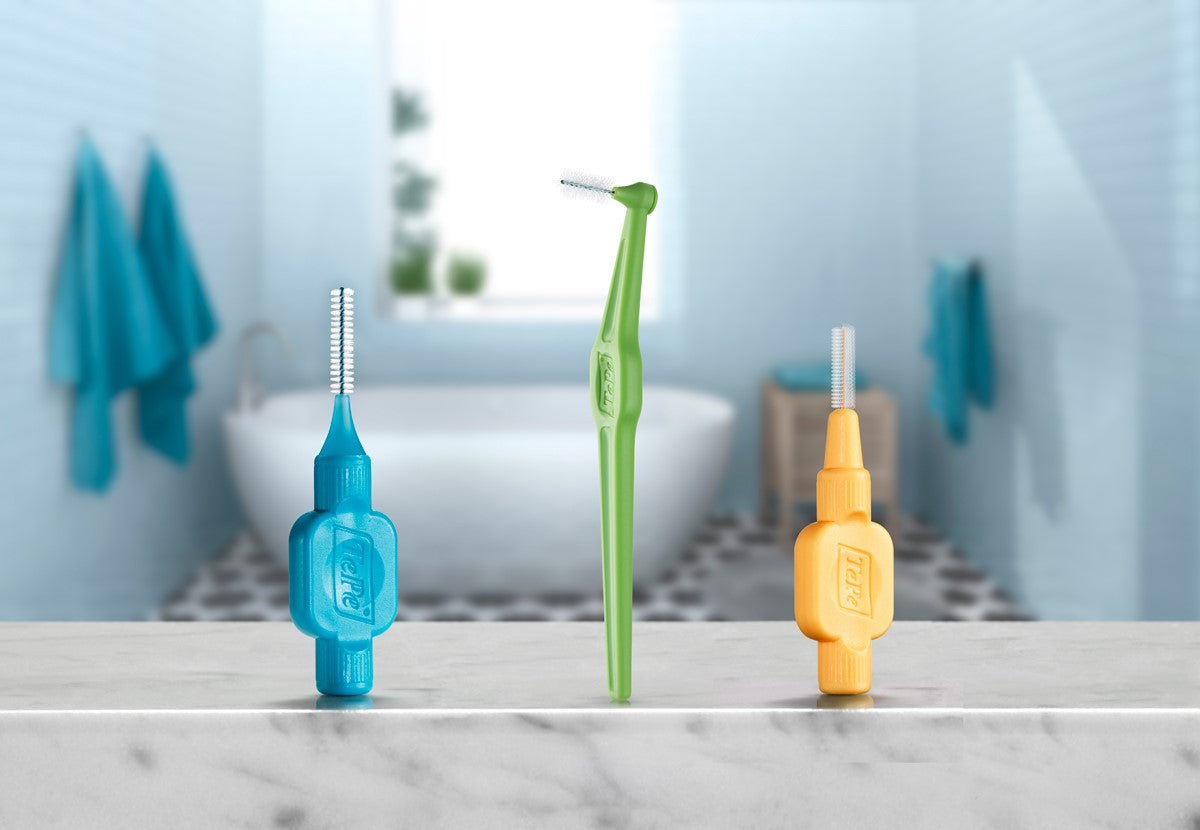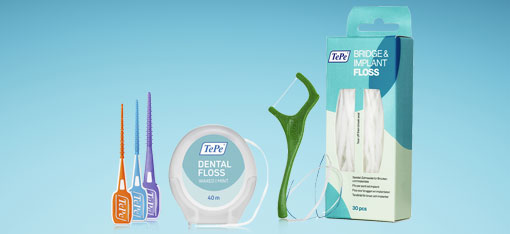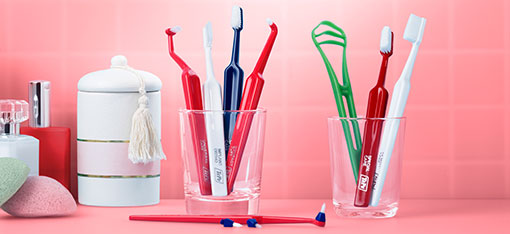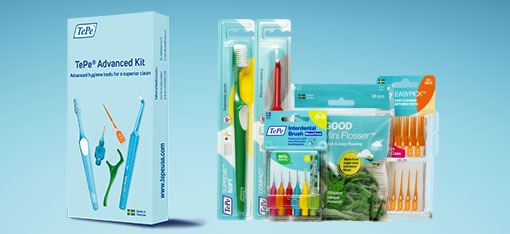Sensitive Teeth

If you have sensitive teeth you may feel a sudden pain or discomfort, which often occurs when eating or drinking something cold, sweet or sour.
How to handle sensitive teeth
If you have sensitive teeth you may feel a sudden pain or discomfort, which often occurs when eating or drinking something cold, sweet or sour.
What causes sensitive teeth?
Sensitive teeth, or dentine hypersensitivity, can be temporary or permanent. The problems can sometimes be caused by cracks or cavities in the teeth, but predominantly sensitivity comes from exposed root surfaces. An incorrect toothbrushing technique may cause gum recession and as well as gum disease (periodontitis) which can leave the root surfaces exposed and sensitive. The most common reason for sensitive teeth is exposed root surfaces caused by incorrect brushing technique or a too hard toothbrush. There are also other causes of sensitive teeth, such as gum recession caused by, cavities, grinding and clenching.
Cleaning advice for sensitive teeth
Use a toothbrush with extra-soft or soft filaments and a toothpaste for sensitive teeth with fluoride. For gentle cleaning between the teeth, use a TePe interdental brush with soft filaments. Use TePe Gingival Gel™ to add extra fluoride if necessary, but never use regular toothpaste between your teeth since toothpaste is abrasive. If the problems remain more than a week, seek advice from your dental profession.
4 tips for sensitive teeth
- Brush your teeth twice a day using a toothbrush with extra soft or soft filaments
- Use a toothpaste for sensitive teeth with fluoride and apply TePe gingival gel around the problem areas
- Clean between your teeth daily
- Avoid cold drinks, acidic food and drinks











Leave a comment